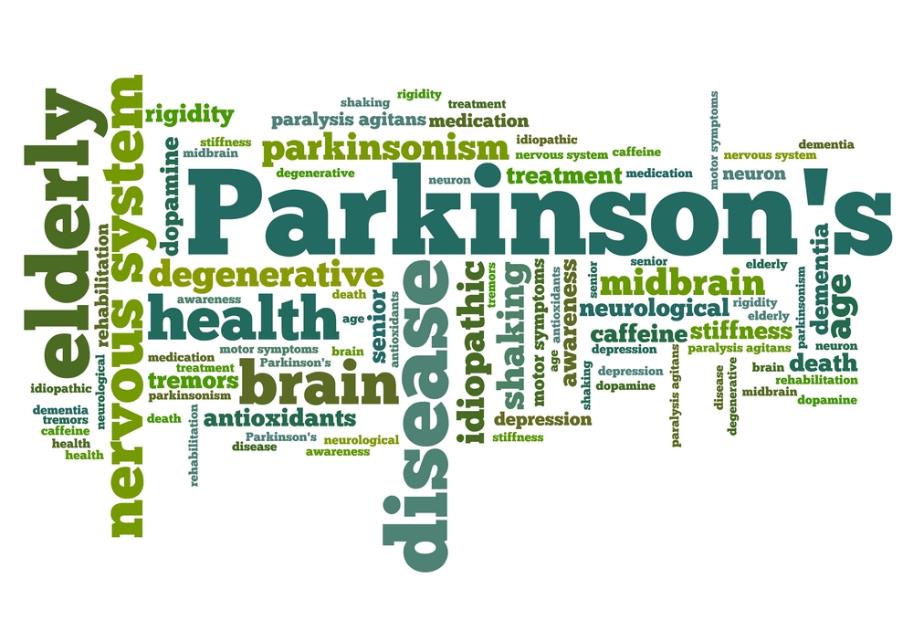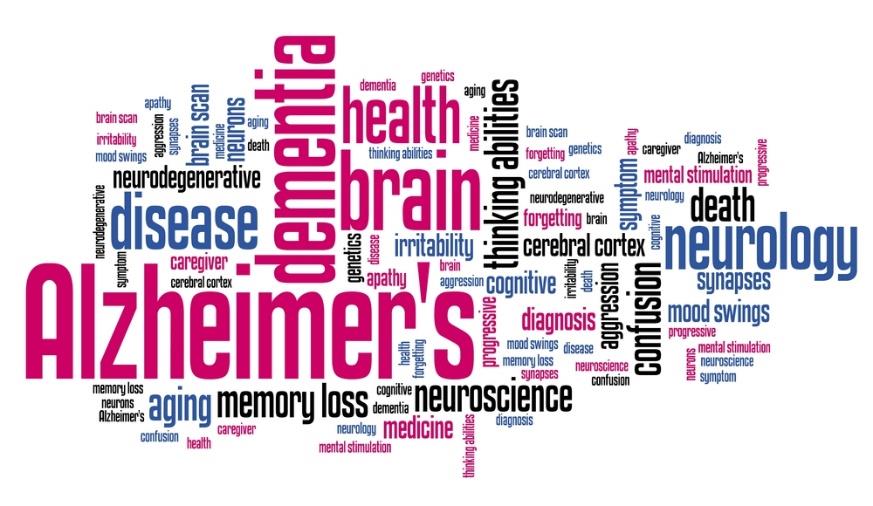Parkinson's Disease: More Than Tremors?
 Parkinson’s Disease awareness has been raised by Emmy Award winning actor Michael
J. Fox’s 32-year battle with the disease and his successful Michael J. Fox Foundation that has raised over a $1 billion for Parkinson’s research. But his age—30—when the
symptoms began and all he has been able to accomplish and continues to do during that
time is not typical of what many others with the disease experience. Like several
neurological disorders, the initial symptoms and the progression can vary greatly
from person to person.
Parkinson’s Disease awareness has been raised by Emmy Award winning actor Michael
J. Fox’s 32-year battle with the disease and his successful Michael J. Fox Foundation that has raised over a $1 billion for Parkinson’s research. But his age—30—when the
symptoms began and all he has been able to accomplish and continues to do during that
time is not typical of what many others with the disease experience. Like several
neurological disorders, the initial symptoms and the progression can vary greatly
from person to person.
My Personal Experience
Other than blogging for 10 years for a home healthcare company, observing several
close friends and a brother diagnosed with the disease, and learning how Parkinson’s
and Alzheimer’s can have many similarities from my husband having had the latter,
I don’t claim to have any formal medical background on the subject. So, consider that
as I share my personal stories and research.
Initial research on Parkinson’s and Alzheimer’s diseases yields a list of typical symptoms and the probable progression of both. However, personal experience and a little more research has shown me just how different the initial symptoms and the progression through the lists can be for each person who has one of these diseases. (For more information, see the sources below.)
Similarities in Parkinson’s and Alzheimer’s Diseases
To further complicate matters, there are symptoms of Parkinson’s and Alzheimer’s that
are similar. These differences and similarities can sometimes make an initial diagnosis
difficult. If you suspect that you or a loved one has the symptoms of one of these
diseases, don’t just assume that you are right. Get checked out by a professional,
as the available treatments for each are different.
 Parkinson’s: I have a good friend who was diagnosed with Parkinson’s more than 10 years ago. He
did initially present with tremors, but for years, the medication he took mostly controlled
them. Because tremors are what most people think of as typical for this disease, many
people didn’t suspect he had Parkinson’s. Perhaps mores surprising is that in his
early stages, his wife and I found similarities in the changing behavior of our husbands.
Both had similar physical and cognitive difficulties that presented themselves sooner
than most lists of symptoms predict.
Parkinson’s: I have a good friend who was diagnosed with Parkinson’s more than 10 years ago. He
did initially present with tremors, but for years, the medication he took mostly controlled
them. Because tremors are what most people think of as typical for this disease, many
people didn’t suspect he had Parkinson’s. Perhaps mores surprising is that in his
early stages, his wife and I found similarities in the changing behavior of our husbands.
Both had similar physical and cognitive difficulties that presented themselves sooner
than most lists of symptoms predict.
My brother who has only had the typical tremors of Parkinson’s for about five years is already experiencing significant cognitive challenges. Because some of the medication for tremors can have the side-effect of cognitive difficulties based on the dosage, doctors have struggled to achieve a balance between giving him enough medication to stop the tremors and yet not so much that his thinking is impaired.
The last time I talked with him, he had made an appointment to have the extensive cognitive test that is given to help diagnose neurological diseases and serve as a baseline for their progression. He told me he has had to turn over management of their finances to his wife because of his difficulty with simple mathematics, as well as other executive functions.
 Alzheimer’s: My husband’s predominant symptom for what was later diagnosed as Alzheimer’s was
not short-term memory loss, the marker most people associate with that disease. Instead,
he had physical difficulties—walking, balance, falls—and cognitive difficulties such
as processing information when he was given more than one instruction at a time. He
also had a tremor in one hand. (Later diagnosed as an Essential Tremor, not related
to Parkinson’s.) When we first saw a neurologist at the University of Utah, he was
told that the symptoms he presented with could be either Parkinson’s or Alzheimer’s,
and he was tested for both.
Alzheimer’s: My husband’s predominant symptom for what was later diagnosed as Alzheimer’s was
not short-term memory loss, the marker most people associate with that disease. Instead,
he had physical difficulties—walking, balance, falls—and cognitive difficulties such
as processing information when he was given more than one instruction at a time. He
also had a tremor in one hand. (Later diagnosed as an Essential Tremor, not related
to Parkinson’s.) When we first saw a neurologist at the University of Utah, he was
told that the symptoms he presented with could be either Parkinson’s or Alzheimer’s,
and he was tested for both.
What the Experts Say
According to the Parkinson’s Foundation website, ”an estimated 50 to 80 percent of people with Parkinson’s disease will eventually
experience Parkinson’s disease dementia. This is typically marked by a decline in
thinking, reasoning, and problem-solving. Studies have shown that dementia is present
in about 83 percent of those still living with the disease after 20 years. The average
time from onset of movement problems in Parkinson’s to developing dementia is approximately
10 years.” Unfortunately having “10 good years” is not always the case.
The medical consensus seems to be that in the early stages of Alzheimer’s “physical ability remains largely intact,” but that over time it begins to decline as the brain forgets how to make the muscles work to walk and perform steps of tasks necessary for self-care. However, the Alzheimer’s Association website clearly informs us that the stages of the disease they list “provide an overall idea of how abilities change once symptoms appear and should only be used as a general guide.”
The Takeaway
My friend with Parkinson’s now has debilitating difficulty with memory, confusion,
swallowing, talking, feeding himself, and reading, symptoms similar to my husband’s
during the last months of his life. A friend’s father with long-term Parkinson’s,
can no longer walk without a walker and probably should be in a wheelchair, but he
has few cognitive challenges.
When I’ve shared with other caregivers my experience with and knowledge of the diversity of symptoms in Parkinson’s, Alzheimer’s and other neurological diseases, their reaction is often one of relief. Several have even said something like, “Oh, good! Then I’m not crazy!”
Awareness of the diversity of symptoms and their onset can be both good news and bad news. There is still no cure for these diseases, but being prepared to be surprised, being informed about medications and workarounds that can make life easier and more enjoyable, and making the most of each good day you and your loved has is always good advice. Michael J. Fox is a living example of doing exactly that.
Sources:
Parkinson's Disease and Alzheimer's Disease (verywellhealth.com)
Parkinson's Disease Dementia | Symptoms & Treatments | alz.org
Parkinson's Dementia: Symptoms, Causes, Diagnosis, Treatment (verywellhealth.com)
Non-Movement Symptoms | Parkinson's Foundation
How Alzheimer's Affects Physical Ability (verywellhealth.com)
Alzheimer's Stages - Early, Middle, Late Dementia Symptoms | alz.org
Parkinson’s vs. Alzheimer’s: A comparison (medicalnewstoday.com)
